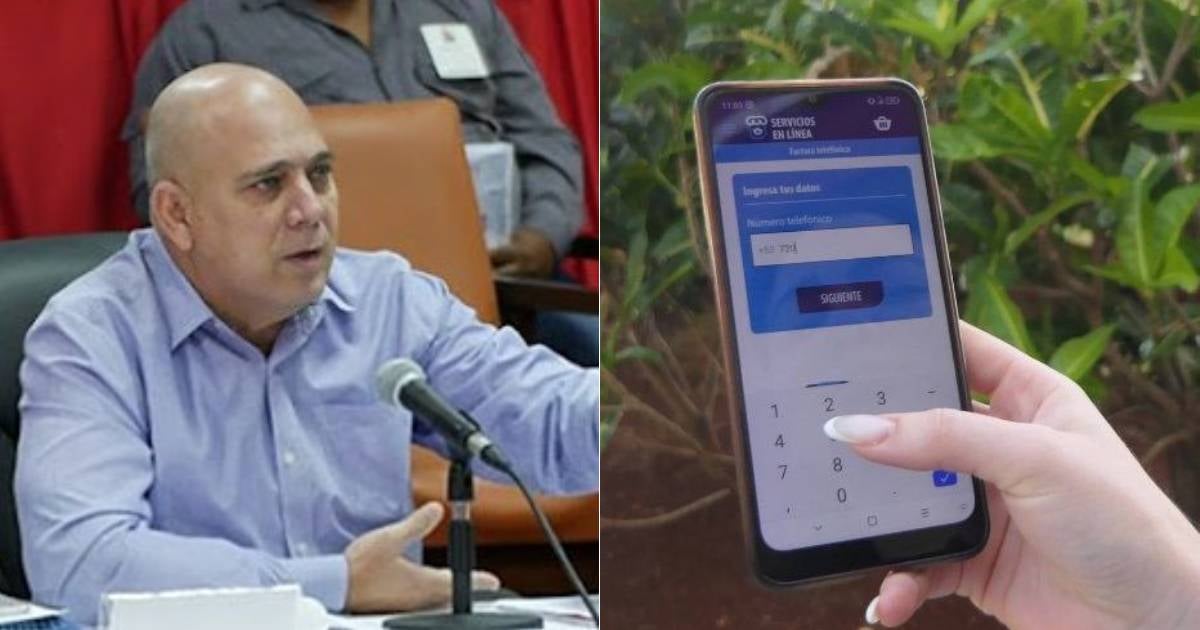The Cuban government has once again pointed fingers at alleged “subversive campaigns” orchestrated from abroad for the recent student protests that have swept across several university campuses in the nation, opposing the new fees imposed by ETECSA. As students from various universities call for academic strikes and criticize exclusionary measures, the official narrative persists in discrediting their actions and projecting an image of normalcy and institutional dialogue.
On June 4, the ultra-official newspaper Granma published an article titled “An Unbeatable Response: Unity,” where the regime claims that an “aggressive imperial policy” aims to weaken Cuba “through lies and economic pressures.” Roberto Morales Ojeda, Secretary of Organization for the Communist Party's Central Committee, warned of a “media war” that he claims seeks to “sow chaos, promote violence, and fracture the peace of our nation.”
“There is no room for naiveté,” stated Morales Ojeda. “This media war is not a game; it is a destabilizing weapon directed not only at our political system but against the real needs of our people.” In line with this, Granma suggests that the recent demonstrations are the result of external incitements intended to “overshadow the value of dialogue spaces” and fracture the connection between young people and institutions.
The article underscores that it will be the “conscious, critical, and revolutionary unity” that will prevent these expressions of discontent from leading to violence or institutional breakdown. This narrative was reinforced in a recent broadcast of the National Television News (NTV), which denied the existence of student strikes and depicted the protests as external manipulations. “The educational process continues to progress,” declared journalist Talía González, emphasizing the supposed normalcy in university classrooms.
Spokespersons for the national University Student Federation (FEU) appeared on camera asserting that “the organizations do indeed support us” and advocated for dialogue with ETECSA. However, this stance starkly contrasts with the reality experienced in various faculties.
Student Opposition and Internal Divisions
Despite the official narrative, student statements criticizing the increased cost of internet access as a direct assault on people’s rights have multiplied. The Faculty of Communication at the University of Havana rejected the 6 GB package offered by ETECSA and advocated for “critical and strategic” dialogue without accepting fragmented privileges.
Even more assertive was the declaration from the Faculty of Communication and Letters at the University of Holguín, which called for an indefinite academic strike starting June 7 until the new measures are repealed. “We are not a privileged minority; we are the voice of a people tired of paying for inefficiency,” they asserted.
In other universities, such as the Faculty of Exact and Natural Sciences, students from the Mathematics and Computer Science departments announced they would maintain the academic strike. “We mobilize for social justice, not for crumbs,” they wrote.
The rebellion has not been limited to the academic realm: the Faculty of Biology disregarded the authority of the national FEU president, Ricardo Rodríguez González, while the Faculty of Philosophy, History, Sociology, and Social Work demanded his immediate resignation, deeming him “uncritical and complacent.”
Key Questions About Cuba's Student Protests
What triggered the recent university protests in Cuba?
The protests were sparked by the new fees imposed by ETECSA, which students see as exclusionary and a direct attack on their rights.
How is the Cuban government responding to the protests?
The government is blaming foreign "subversive campaigns" for inciting the protests and is attempting to delegitimize the student actions by presenting an image of normalcy and institutional dialogue.
What actions are students taking in response to the new ETECSA fees?
Students have been organizing academic strikes, rejecting ETECSA's offers, and demanding the repeal of the new measures, emphasizing the need for social justice.
